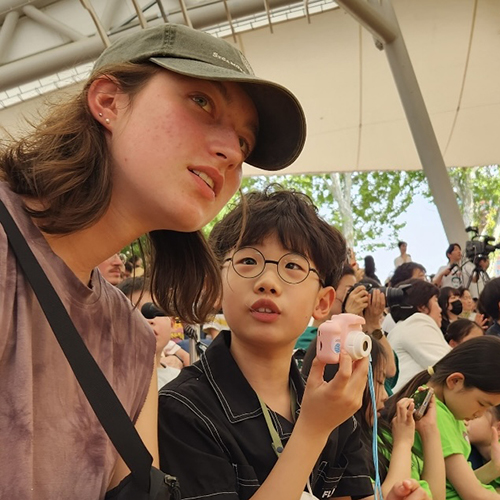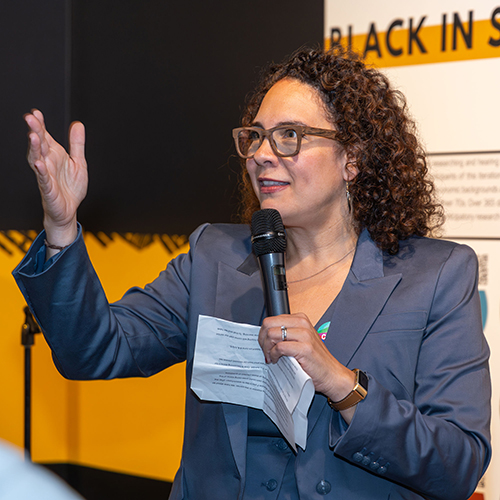In the College of Arts & Sciences, we are proud to celebrate our first-generation community through a collection of stories! We honor our students, alumni, faculty, and staff, and their many contributions to our university community and beyond.

Usha Varanasi
Chemistry Department (Ph.D. 1968)
Affiliate faculty since 1980
How did your experience as a first-generation college student, and now faculty member, inspire/impact your teaching, research, and connection to students?
I am gratified that this generation of students gravitate to my five decades of experiences, which I published as a retrospective essay ‘Casting a wide net and making the most of the catch.’ I use it as a guest lecturer to speak to students learning about and working on society and sustainability and environmental policy in Dr. Peter Kahn's undergraduate class. They feel excited to read about my challenges and successes as I navigated from being a first generation, immigrant graduate student from India joining the UW Chemistry Department to retiring as a science director of NOAA’s Northwest Fisheries Science Center with about 500 scientists and staff.
What insights would you share with current and future first-gen students?

I believe that the journey should be as much fun, and as fulfilling, as reaching the goalpost, which may shift and thereby make life more challenging and interesting. Use the philosophy in this famous quote that “nothing great is ever achieved without enthusiasm because enthusiasm urges you to do your best.”
Confidence comes from having faith in yourself and realizing that it’s okay to be a little bit eccentric and to revel in your own uniqueness. Being yourself will attract like-minded people such as fellow students, mentors, etc., and make your journey fulfilling.
I would also say to pick your battles. There are so many biases and so many slights that women and BIPOC communities face. Don’t take on or worry about every one of them. It is not worth your time and it will exhaust you. But if the issue or bias/prejudice is a big one that is important to you, don’t allow yourself to ignore it. You should stand up for your values, and UW gives students the tools and confidence to stand up for what is important to them.
What brought you to the University of Washington?
It was my future husband, S. Rao Varanasi, an engineering student from India whom I met at California Institute of Technology in 1961. He enrolled for his Ph.D. program in UW's Aerospace program in 1962. He persuaded me to move to UW. We got married in 1965 and graduated together in 1968 with Ph.D. in our respective fields. Having a partner made it a bit easier to get through challenges of being a first-generation minority female student.
More Stories

Finding Family in Korea Through Language & Plants
Through her love of languages and plants — and some serendipity — UW junior Katie Ruesink connected with a Korean family while studying in Seoul.

The Mystery of Sugar — in Cellular Processes
Nick Riley's chemistry research aims to understand cellular processes involving sugars, which could one day lead to advances in treating a range of diseases.

Interrupting Privilege Starts with Listening
Personal stories are integral to Interrupting Privilege, a UW program that leans into difficult intergenerational discussions about race and privilege.
